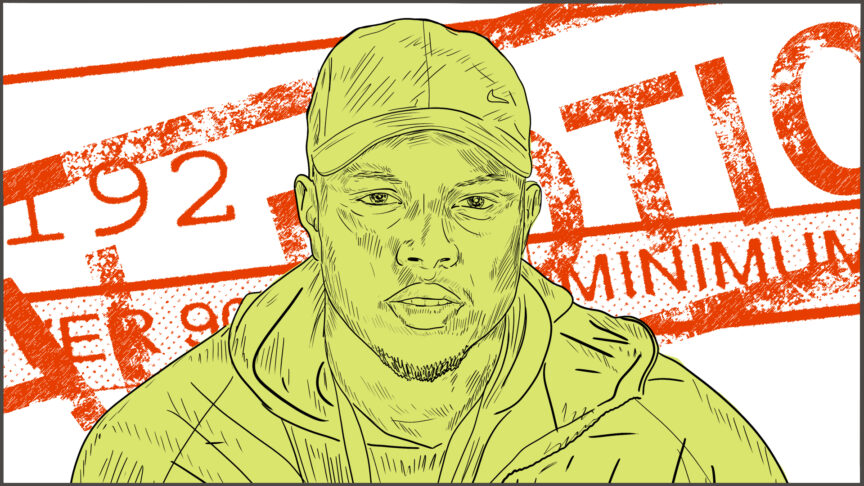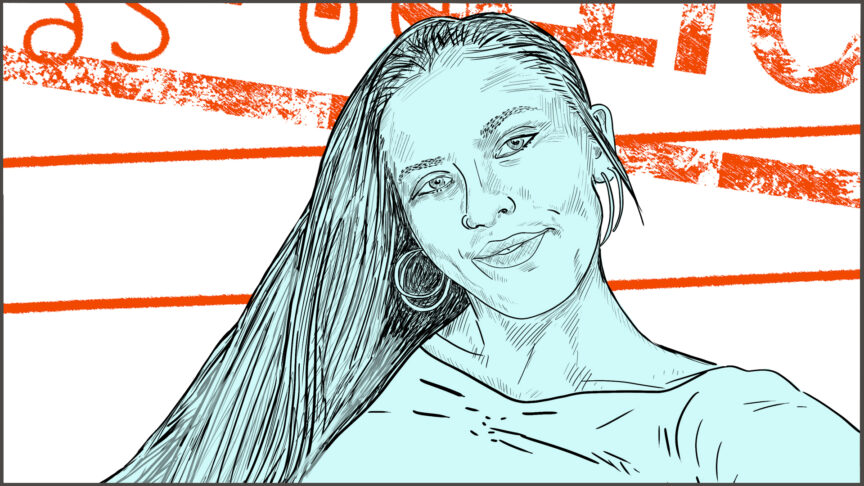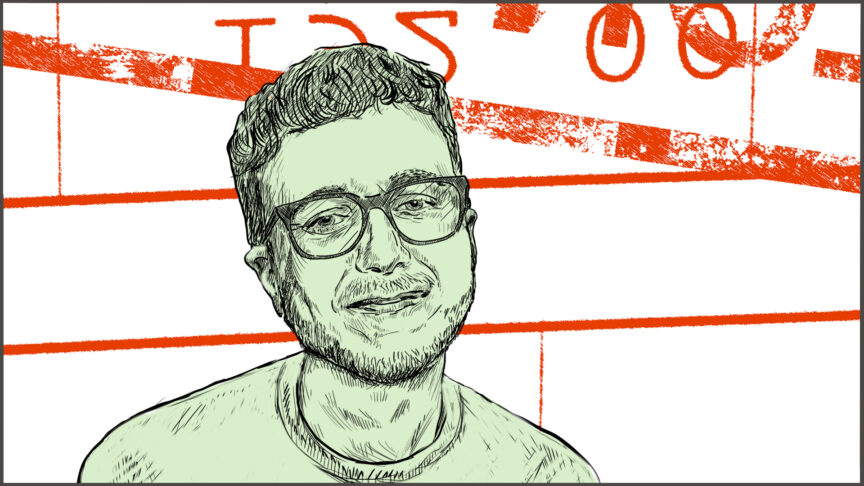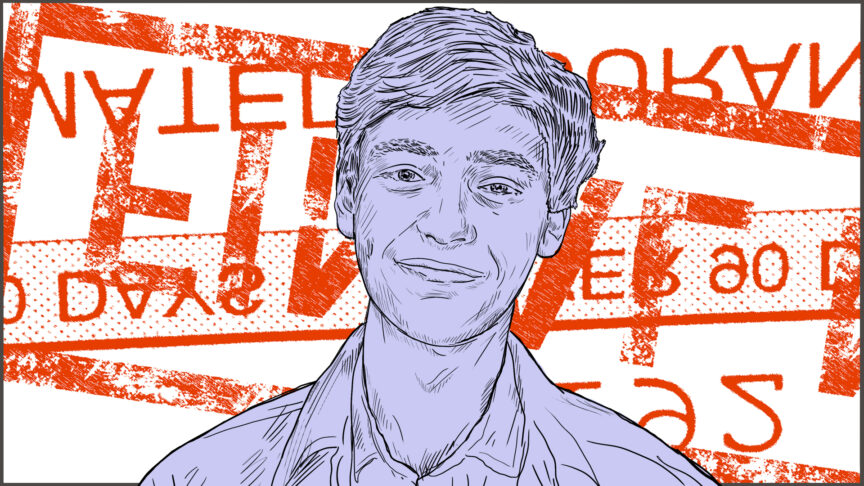Generation Precariat: What’s It Like to Feel Robbed of Your Future?
‘It seems like everything is getting harder.’
by Sophie K Rosa
21 April 2022
The cost of living crisis is hitting people of all ages. Young people, however, are set to be among the worst impacted. ‘Gen Z’ – those born between the late 1990s and the early 2010s – face multiple intersecting crises: Covid, and its impact on mental health, education and the job market, plummeting wages, skyrocketing costs for essential goods and services – and now tens of thousands of pounds more student debt.
Novara Media spoke to four young people about the experiences of their age group in the UK today, how the political landscape is shaping their plans for the future, and whether they believe real change is possible.
‘I’ll probably have to move back in with my parents’ – Abdul, 22, Leicester.

My whole university experience has been online. I found studying that way really hard, and I’m currently retaking a year, which means I don’t have a maintenance loan this year. Until recently, I worked in a warehouse on a Ministry of Defence contract, but I was made redundant. I went to uni because it felt like the natural thing to do, and because my parents wanted me to. But uni, at least in this online format, hasn’t been a good experience for me, or good for my mental health. I couldn’t tell you what I’ve learned, I’ve kind of switched off. It’s been a surreal battle trying to engage and to find the right support. And now I’m in so much debt because of it.
This country is in decline and I don’t really see a future for me in it – with every small change, like the increase in National Insurance, it just seems like everything is getting harder. We’re expected to get on with our lives, living through crises – but when we need state assistance, there’s nothing there. I’m from London and I’d like to move back after I graduate – but finding a job that pays well enough to afford a sustainable life seems very difficult. I’ll probably have to move back in with my parents.
It feels like, as a society, we’ve pushed aside the idea that quality of life matters. I don’t need a lot of money; I don’t want to compete to get to ‘the top’, and suffer the whole way. But I don’t want to keep struggling financially either, working constantly to survive – I want a better quality of life. I’m thinking of moving abroad because of this, maybe to Germany. I think a lot of my generation feel this way.
I think young people want change, and I do think the cost of living crisis could provoke an uprising – but I’m worried that such a movement would become divided. And I have no faith in politicians. For now, my greatest source of hope is within me, and in God.
‘I’m eating a more basic diet in order to save money’ – Amy, 22, Hertfordshire.

I moved to Amsterdam to study straight after I finished school in 2017 – in part because it was more affordable than going to university in the UK, before Brexit anyway. I’m moving back to the UK, to London, soon. I’ve worked in hospitality since I was 15, and have been working here, in a coffee shop, which – along with the assistance the Dutch government gives students – has meant I’ve gotten by okay. I’m nervous about coming back to the UK because of the cost of living – but life is getting even more expensive in the Netherlands, too. I’m eating a more basic diet in order to save money, and not going out with my friends as much because everything is so expensive. Life has become very focused on work.
Back in the UK, I just want to find a job that will allow me to pay my bills and have enough money and time left over to enjoy life. I don’t feel ‘career-minded’ – it seems like most of the jobs out there will overwork me and underpay me. The things I imagined myself doing as a child, I no longer imagine myself doing – things like buying a house, having a stable job, or getting married. It’s disorientating sometimes – I don’t imagine I’ll ever have financial stability. But it’s also freeing: I don’t feel as much pressure to do things I might not have really wanted to do anyway, because they’re actually impossible. In place of those options is space for me to think about life in different ways. But the reality is that the state currently isn’t facilitating people’s survival – let alone their freedom to live in ways that feel good.
I think we’re approaching a tipping point – life has been getting worse for most of society for such a long time now. We all need to be able to put food on the table, but I think more and more people in my generation are wanting more out of life than working to survive, working until we die. I want to build community rather than think about my life as a timeline with expectations and deadlines. At the same time, I’m fearful that precarity will mean life won’t be enjoyable. I think young people are ready to rise up against the system, but that we’re quite separated from each other by social media, and – although in general we don’t respect the police – some are scared by recent authoritarian policies banning protest.
‘Me and my friends aren’t making plans for the future – we can’t afford to’ – Luke, 21, Essex.

I graduated from uni last year, and my dream is to be an actor. Since graduating I’ve had a few acting jobs – apart from that, I’ve gotten by on Universal Credit and stacking shelves at Sainsbury’s. Working at the supermarket, I’ve seen the cost of groceries go up massively. This, along with a lack of government support before and during the pandemic, is making life in the arts impossible – things like putting on a small theatre production is unaffordable. I’ve lived under 12 years of austerity; I’ve never had the chance to prosper in this country – as a young person, or as an artist. They say we’re experiencing a once in a lifetime economic crisis – but this is my third or fourth, and I’m only 21. Me and my friends aren’t making plans for the future – we can’t afford to.
The Tories don’t want the arts to survive because it’s a platform to challenge the establishment, a means of protest. They’d rather young people do boring desk jobs that prop up their profits. But I think more young people have realised they don’t want a life of ‘work, work, work’. We want to enjoy our lives.
My age group is considered the ‘social media generation’; social media is the only real escape we have from the living nightmare we call existence, not least the climate crisis. Of course we want to detach from reality. We’re stuck in a political landscape where our choices are ‘neoliberalism with authoritarianism’, or ‘neoliberalism with authoritarianism’. More people are waking up, though – I do think social unrest is building among young people. I hope my generation will fight back – but there’s a portion of people who know things are bad, but are willing to comply with the system anyway. I do think there is a growing consensus around socialist ideals in my age group, though, because we’ve been so badly hit by the capitalist system. And the pandemic has taught us that coming together in solidarity is how change happens.
‘The UK feels like a decaying country’ – Brénainn, 17, Lancashire.

I’m currently in Sixth Form, and until I got made redundant recently I worked at Tesco. I’m hoping to go to university in 2023. The pandemic has made young people like me much more apprehensive about the future. Everything feels so unpredictable. We feel really left behind by politicians, often used as a political football. Me and my friends feel disillusioned with the whole system, and played by the government. People say ‘anti-social behaviour’ and petty crime has gone up among young people – but a lot of that is due to the massive increase in child poverty and relative poverty among young people. At my school, people used to come in with more food for lunch than they do now. It doesn’t seem right in one of the richest countries on Earth.
Seeing the cost of food, transport, accommodation all going up, lots of us are rethinking going to university – especially with the limited financial support offered by the government. I come from a lower-middle income family and going to university is going to be a struggle – so for those worse off, it’s surely going to be impossible. In terms of the world of work, I’m aware the cost of everything is going up but wages aren’t, and there’s next to no safety net. It’s like we’re trapped; many of the options that were there for previous generations just aren’t there now. Jobs that are available to people my age are so badly paid – less than £5 per hour. Some people have to choose between going into school or going into work.
I don’t feel like this democracy offers us options – we’ve got the Tories and Labour, who are effectively Tories. The establishment isn’t going to bring about meaningful, radical change. I’m considering leaving the country because I don’t see how things are sustainable here. The UK feels like a decaying country. I don’t see a future for me or many other young people here. The capitalist system is what has us in this trap, and I do think young people are coming to realise this – but the system itself also makes us resistant to and fearful of change. As more and more people become desperate – including because of the climate crisis – eventually people will become so disillusioned that they will demand something else.
Sophie K Rosa is a freelance journalist and the author of Radical Intimacy.


